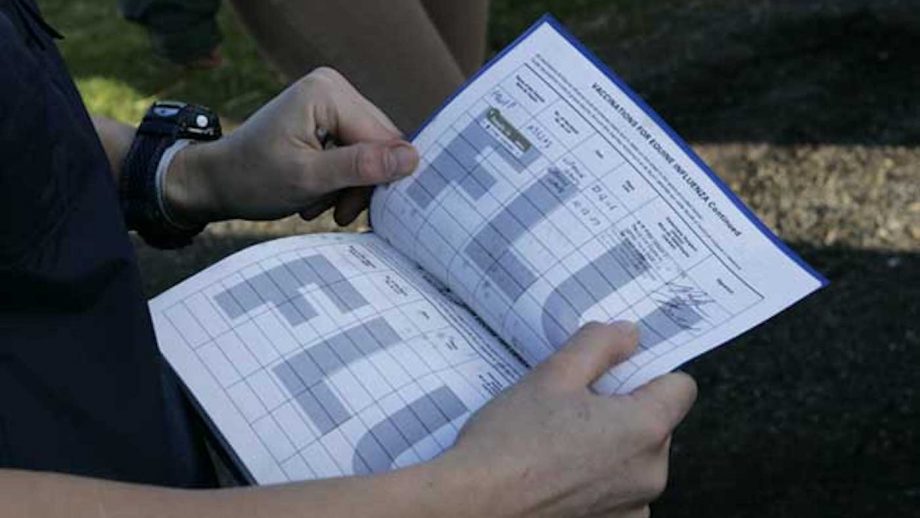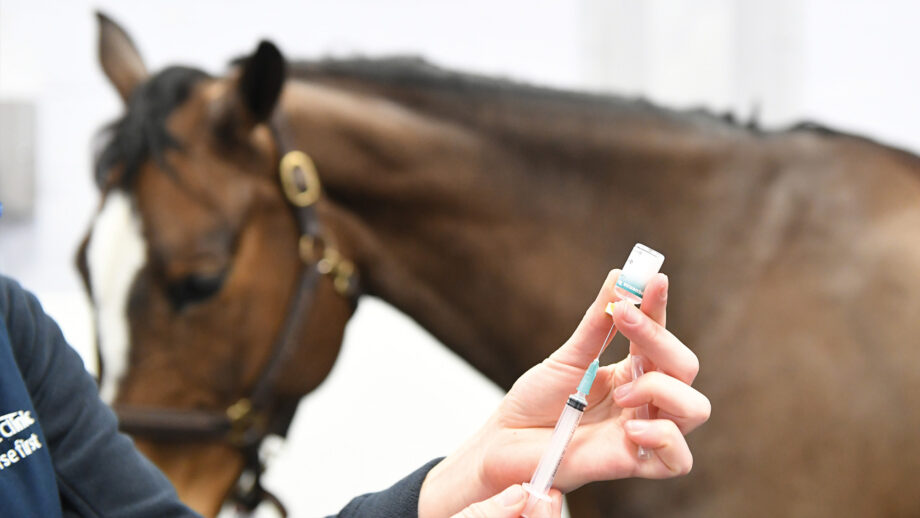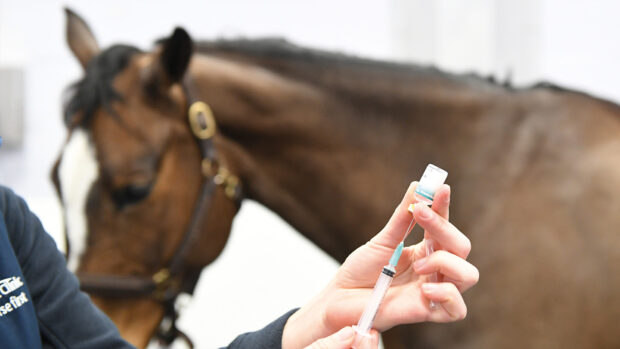Owners must be encouraged to vaccinate horses every six months against equine influenza (EI) for “optimal” protection, as vaccine supplies return to normal.
Following the resolution of a shortage of vaccinations, reported by H&H this summer and autumn, and a recent increase in cases of equine flu in the UK, the Equine Veterinary Journal (EVJ) has published a report reviewing the science behind flu vaccination schedules, “in particular the replacement of annual boosters with a mandatory bi-annual vaccination programme”.
Mandatory flu vaccination was introduced in most competitive equestrian disciplines some 40 years ago, since when the scale and numbers of outbreaks have in general been relatively small.
But outbreaks such as those in the UK in 1989, 2003 and 2019 have “demonstrated EI’s epidemic potential, even in vaccinated horse populations”.
In the article Equine influenza bi-annual boosters: what does the evidence tell us? epidemiologists Victoria Colgate and Richard Newton “discuss what has been learnt from previous outbreaks and explain the evidence from mathematical models to show why bi-annual boosters are beneficial”.
“Epidemiological data from previous natural EI outbreaks have repeatedly demonstrated the impermanent nature of the protection provided by vaccination, and observational field studies repeatedly highlight the potential for 12-monthly boosters to leave a vulnerable immunity gap at both the individual animal and population level,” an EVJ spokesman said.
“Mathematical models of EI transmission confirm that six-monthly rather than annual EI booster vaccinations are preferable to establish and maintain effective population level immunity to EI.”
The article adds that ideally, vaccine strains should be kept updated to ensure the most relevant disease strains are included but “this is a slow and expensive process for equine vaccine manufacturers”.
“In the absence of updated vaccine strains, bi-annual vaccination is strongly recommended to help compensate for antigenic drift between vaccine and circulating EI viral strains,” the spokesman said.
The authors added: “The equine industry must surely remain resolute and guided by scientific principles. The clear evidence from experimental, epidemiological and mathematical modelling studies shows why we must encourage clients to revert to a schedule of bi-annual boosters.
“We must also remind horse owners that animals already on six-monthly vaccination regimes were best positioned for the vaccine shortage with a built-in tolerance in their vaccination schedule; their levels of immunological protection would not be expected to decline to susceptible levels, even with a slight delay before being re-vaccinated.”
H&H reported during the vaccine shortage that the FEI and other bodies had relaxed the six-month vaccination requirement. This was as the middle-aged competition horses concerned were more likely to have built-up immunity from frequent immunisation, and the vaccines could be saved for the more vulnerable equids.
“Although the recent EI vaccine shortage has necessitated a temporary relaxation of competition vaccine schedules, we must now renew the message that six-monthly boosters are optimal and necessary,” said EVJ editor Celia Marr.
The governing bodies in the UK have not yet announced their flu vaccination rules for 2023.
You might also be interested in:

Equine flu vaccination shortage remedied – as multiple outbreaks occur

Equine flu: what all owners need to know to protect their horses

Horse & Hound’s definitive guide to equine vaccinations

Subscribe to Horse & Hound magazine today – and enjoy unlimited website access all year round
Horse & Hound magazine, out every Thursday, is packed with all the latest news and reports, as well as interviews, specials, nostalgia, vet and training advice. Find how you can enjoy the magazine delivered to your door every week, plus options to upgrade your subscription to access our online service that brings you breaking news and reports as well as other benefits.



